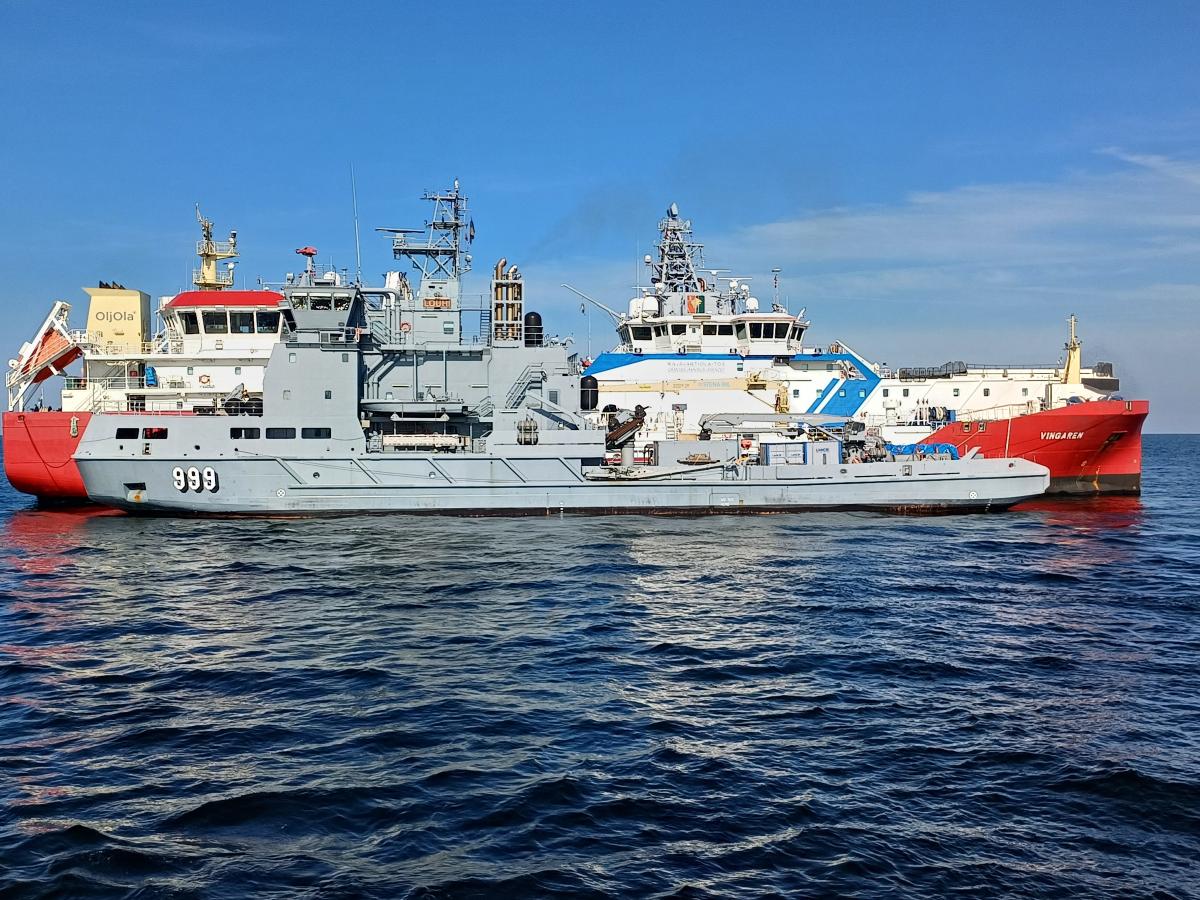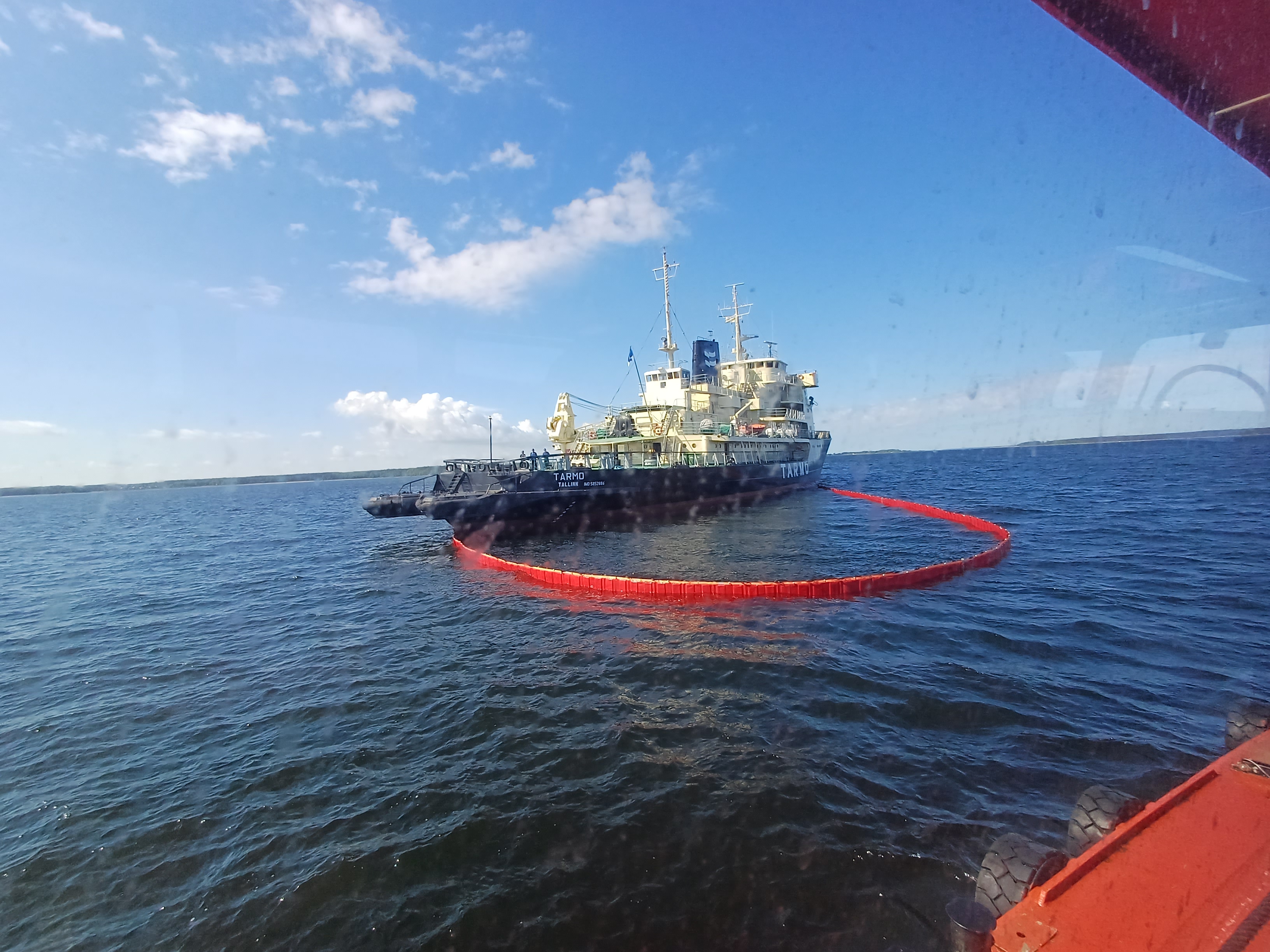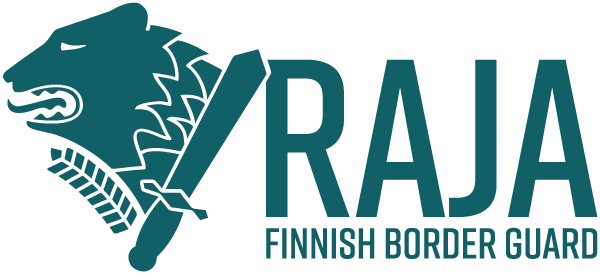Clean Sea oil pollution response exercise outside Tallinn

Clean Sea oil pollution response exercise, hosted by the Estonian Navy, takes place in the sea area outside Tallinn, as well as in Muuga harbour, on 2–4 June.
In addition to Estonian units, also the Finnish Border Guard’s Coast Guard vessel Turva participates in the exercise together with the oil pollution response vessel Grisslan, tendered by the Finnish Border Guard. Furthermore, the European Maritime Safety Agency EMSA’s temporary storage tanker M/T Vingaren arrives from Denmark in order to participate in the exercise.
Finnish experts from the Finnish Border Guard participate in the exercise. Finland’s readiness to act both as giver and as receiver of aid in maritime pollution response in a multinational situation is improved by participating in the exercise.
Exercise scenario: a collision between a tanker and a cargo vessel
The exercise’s starting situation is an imaginary collision between an oil tanker and a cargo vessel, which results in a spill of heavy fuel oil into the sea. In the exercise scenario, Estonia requests for international assistance in order to minimise environmental pollution.
Estonia has organised Clean Sea exercises since the beginning of the 21st century. These exercises improve especially the international cooperation, and give an opportunity to familiarise with the response capabilities of the material the other participating countries have for environmental pollution response.
The exercise begins with an alarm exercise and with sending an international request for assistance. On Tuesday, cooperation is trained in gathering an imaginary oil belt, as well as in transferring the gathered oil from the response vessels to EMSA’s temporary storage tanker, as well as to Muuga oil harbour.
Shared exercises, shared capabilities
During the exercise, a common situation picture is compiled and shared through the Finnish Border Guard’s MERT-database, which was developed for leading maritime pollution response, as well as for conveying situation picture. After the exercise, the crew of the response vessels get a chance to familiarise themselves with the Vingaren vessel.
International cooperation, and at least support from the closest neighbouring countries, are always needed when facing an extensive maritime environmental accident. Shared exercises develop the readiness in international response operations, when the procedures and capabilities of the neighbouring country become more and more familiar year by year.
Several actors and European support
In accordance with the Rescue Act, the Finnish Border Guard takes care of rescue operations in connection to maritime oil and chemical spills in Finnish territorial waters and in Finland’s exclusive economic zone, as well as coordinates readiness for them. The rescue departments of the wellbeing service county are responsible for response actions along the coast and on the shores. In Finland, maritime pollution response is carried out by multiple authorities, and the Finnish Defence Forces, State Enterprises, as well as reference centres participate in it.
The European Maritime Safety Agency EMSA provides both expertise and operational support for maritime safety and for maritime pollution response. The majority of the agency’s work is proactive, such as observation of the implementation of the legislation, as well as assessment of its efficiency. However, the agency also operates reactively: for instance, it provides EU countries response vessels for maritime pollution response in connection to oil spills at sea. Currently, EMSA has an ongoing tendering in order to acquire an oil response vessel to northern Baltic Sea area.




